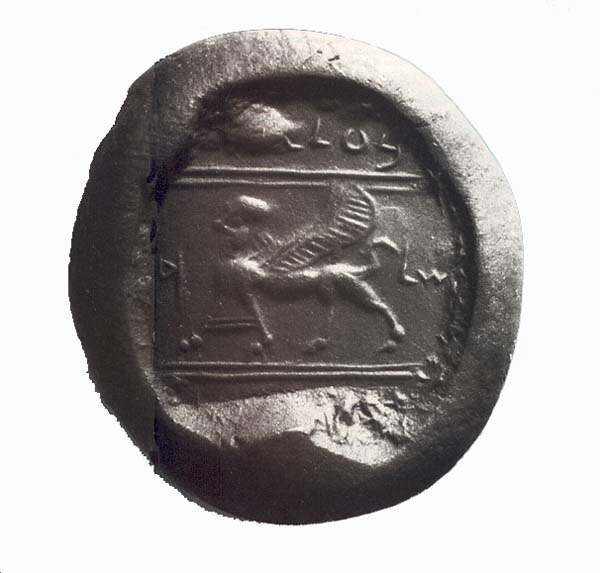Image Details

Courtesy Robert Deutsch
Sealed by a king. Produced by a seal that has recently come to light (see cover photo), the modern-day impression mimics, albeit in damaged form, those that were once affixed to important documents in the royal Ammonite court. The top line, partially reconstructed, reads, “[Belonging to] Ba‘alis.” The word “king” flanks the winged sphinx at center, while the nearly indecipherable bottom line contains the partial first and last letters of the phrase “Sons of Ammon.”
The Bible describes the Ammonites as constant enemies from Israel’s earliest days in Canaan: “And the Ammonites crossed the Jordan to fight also against Judah and against Benjamin and against the house of Ephraim; so that Israel was sorely distressed” (Judges 10:9). Ba‘alis, the early sixth-century B.C.E. king to whom the seal belonged, continued this tradition of animosity when he dispatched an assassin to murder Gedaliah, the Babylonian-appointed governor of Judah. The assassination is commemorated even today in Jewish tradition by a yearly fast.
